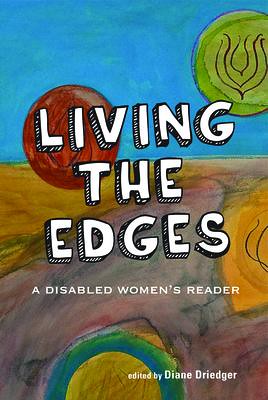I gave a bit of a talk recently on what I viewed as the barriers to sexual health and education for people with disabilities, discovering that I have a lot of thoughts about the barriers not only to sexual health but to all levels of health care when one is disabled. These can vary from the difficulties in making appointments to waiting rooms where people who use wheelchairs are told to wait in the hallway.
Sexual health is something that weighs quite heavily on my mind. As we’ve highlighted here (and many other bloggers have highlighted elsewhere), people with disabilities, especially women, are vulnerable to sexual abuse.
Over the next few posts (the other two will be available next week), I wanted to highlight some the barriers I perceive in people with disabilities in getting access to sexual health-related care, and I encourage people of any gender, should they wish, to detail out their own struggles or successes in receiving sexual health care. I would remind commenters, though, that people do search and read comments, and if they wish to give their stories anonymously, that’s perfectly acceptable.
The two things I want to highlight today are getting an appointment, and getting into an appointment.
Over the past couple of months it’s been brought intimately home to me how difficult it can be to get a doctor’s appointment for any reason if you can’t use the phone. I’ve been unable to hear very well due to an ongoing ear infection, and Don has a frozen vocal cord, meaning he cannot speak much above a whisper. Trying to book an appointment to get my ear checked has been an effort in frustration: neither my GP nor the ENT clinic I was referred to have any indication of a way to book an appointment that doesn’t involve using the phone.
When I worked in Health Care I did receive relay calls. For those not familiar, d/Deaf or Hard of Hearing people can use relay calls where they use a TTY phone. They contact the relay center via TTY, and the relay center calls the person you wish to speak to. My understanding is that you then type what you want to say, and the relay operator repeats it to the person who you are talking to. They then type up everything the other person says. (The speaking person says “go ahead” when they want the text-part sent.)
[Interestingly, I only learned how to take Relay Calls when I worked in a call center for a major wireless company in the US. No one when I worked in health care discussed Relay Calls or how to handle them, although in my experience the operators were very kind and forthcoming with that information.]
However, phone issues are not limited in any way to people who may be able to take advantage of Relay Calls. Relay Calls are not appropriate for Don’s needs as someone with a frozen vocal cord, for one example. There are also people with audio processing disorders, people who have phone anxiety issues that make using the phone difficult, if not impossible. There are people whose phone-related issues are temporary rather than permanent and thus they don’t have the equipment available to take advantage of something like Relay Calls. These sorts of barriers to accessing health services, especially sexual health services, can cause people to just give up on the whole enterprise.
One solution to this would be for sexual health clinics and doctors offices to consider making people aware of alternative means of contacting them for appointments, be this via email or fax or even an online appointment booking service. While I have no doubt that these are available currently, I have never seen these services advertised. Certainly when trying to book my ear appointments I would have loved to have done it via email, since I couldn’t hear, which made making the appointment difficult.
Another seemingly simple problem that can be a barrier not only to any health service, but any building at all, is the dreaded Wheelchair Lift.
I mean, let’s pretend that every building you’d want to go to for health services was specifically wheelchair accessible (Note: This is not as true as one might imagine.) In many cases, this will mean a wheelchair lift has been added to one of the stairwells.
As many people who use wheelchairs can tell you, wheelchair access is often “in the back”. This can mean that you need to call ahead to let them know that you’ll be there in five or ten minutes and could someone be troubled to let you in? These doors are not always cleared of snow. The one for one of the buildings that Don’s had to enter doesn’t have a full sidewalk going up to it, so he has to deal with mud when it rains. It rains a lot in Halifax.
However, wheelchair lifts, bless them, do not really help a lot of people with other mobility-related disabilities. You can’t use a wheelchair lift if you use a cane. You can’t use it if you use a walker. Occasionally people in these situations will be allowed to use a chair and sit on it while the lift takes them up the flight of stairs, but this is not always something people are willing to do.
Again, these are physical barriers that prevent people with disabilities from accessing health services. They’re not deliberate, but they have long-term consequences that are easy to forget.
 Here’s a book for your list, if you’re celebrating a gifty holiday soon – or just splurge on it for yourself!
Here’s a book for your list, if you’re celebrating a gifty holiday soon – or just splurge on it for yourself!